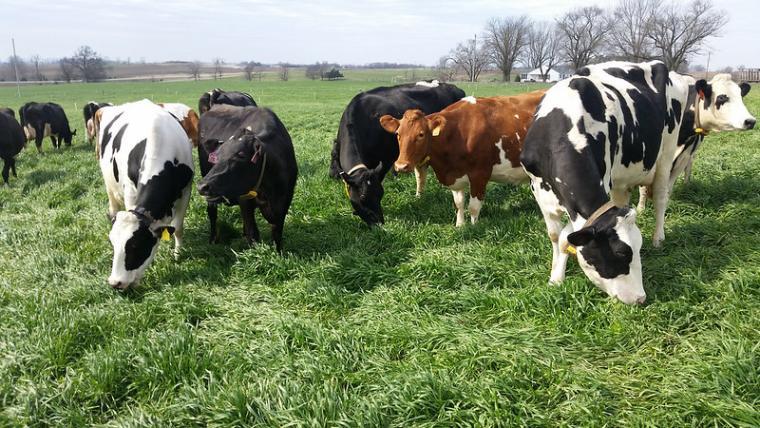COLUMBIA, Mo. – Missouri dairy farmers are urged to protect their dairy herds from highly pathogenic avian influenza (HPAI) virus as the USDA and other federal agencies investigate an illness among dairy cows in seven other states (Idaho, Kansas, Michigan, New Mexico, Ohio, Texas and North Carolina). The illnesses in those states have been confirmed as HPAI.
University of Missouri Extension dairy specialists are providing guidance to dairy producers on mitigating the risks of spreading the HPAI virus to dairy cows in the state. They are also underscoring the safety of the milk supply.
The USDA said wild migratory birds are believed to be the source of infection in the dairy cows. However, the agency said the spread of the illness among the herd in Michigan indicates that HPAI virus transmission between cattle might have occurred.
Reported dairy cow symptoms include decreased milk production, reduced feed consumption, fever, thickened or discolored milk and abnormal manure.
Dairy biosecurity
• Producers are urged to contact their veterinarian if they notice symptoms.
• Quarantine any new or returning animals for a minimum of 30 days.
• Isolate symptomatic cows.
• Dedicate caretakers and equipment to those animals and work with them last.
• Clothing, footwear and equipment used around symptomatic animals should only be worn around them.
• Limit cattle contact to essential team members and veterinarians.
• Minimize access of wild birds, poultry, waterfowl, pets and other livestock to lactating cattle and their environment.
• Producers are encouraged to complete and follow a Secure Milk Supply Plan on the Secure Milk Supply website.
Milking hygiene
• Teat hygiene should be the focus.
• Complete post-milking teat dip coverage.
• Follow milk system sanitation steps before milking other groups of animals.
• Provide clean housing with dry bedding or well-maintained pastures.
• Dispose of unpasteurized (raw) milk from affected cattle by following local, state and federal regulations. Do not feed unpasteurized milk to calves.
Milk safety
“Milk products are pasteurized before entering the market, so there is no concern about the safety of the commercial milk supply,” said MU Extension dairy specialist Scott Poock. Pasteurization inactivates bacteria and viruses, such as influenza, in milk. Consuming raw milk is discouraged.
Human safety
While there have been reported cases of human infection with the HPAI virus, the guidance says the risk is low. Personal protective equipment is urged for people working with symptomatic cattle, including those working with or disposing of milk waste and when in close contact with dead animals, animal feces, litter, milk or materials known to be or potentially contaminated with HPAI (H5N1) viruses.
“Establishing and enforcing biosecurity will be the best defense against the HPAI virus,” said Poock. “Talk with your local veterinarian or a Mizzou Dairy Extension person to help set up a biosecurity standard operating procedure.”
More information
• HPAI detections in livestock, USDA Animal and Plant Health Inspection Service.
• HPAI reported in person, Centers for Disease Control and Prevention.
MU Extension contacts
• Scott Poock: 573-882-6359, poocks@missouri.edu
• Chloe Collins: 417-349-4134, chloecollins@missouri.edu
• Stacey Hamilton: 417-838-3548, hamiltonsa@missouri.edu
Writer: Julie Harker
